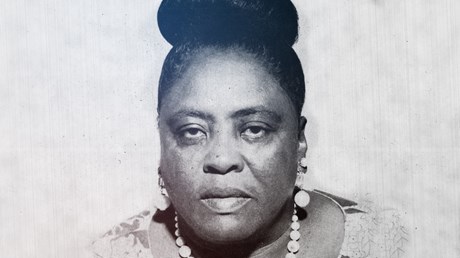Remembering a courageous civil rights activist whose name and story are too little known.

As voting rights take center stage in America’s national conversation, a new biography of civil rights activist Fannie Lou Hamer speaks with special relevance.
Walk with Me, written by historian and biographer Kate Clifford Larson, serves at once as a history of the civil rights movement and a rebuke to ballot-restriction efforts sweeping the nation. Accessible and moving, Larson’s account offers history’s best gifts—context and complexity—to readers who want a better grasp of the trajectory of voting rights in our nation’s past.
America’s civil rights story often reads as the tale of great leaders, extraordinary unity, and heroic corrective legislation. But Hamer’s story demands that we rethink these narratives. Her life highlights the role of sharecroppers, women, students, and poor people who wanted, in her words, “to live as decent human beings.” Rather than marching together in unity, they struggled through deep and ongoing disagreements about the best way to achieve their goals, and they endured unspeakable danger and harassment. As for corrective legislation, Larson’s account demonstrates how new federal measures required unrelenting follow-up at the local level.
Born to Mississippi sharecroppers in 1917, Hamer seemed destined for a life that differed little from that of her parents. With only a sixth-grade education, she worked as a timekeeper on a cotton plantation in Sunflower County, Mississippi. Inspired by young people working with the Student Nonviolent Coordinating Committee (SNCC), Hamer took the first courageous steps on a new trajectory when she and other Sunflower County Blacks tried unsuccessfully to register to vote in the summer of 1962.
from Christianity Today Magazine
via


.gif)

.gif)
.gif)
